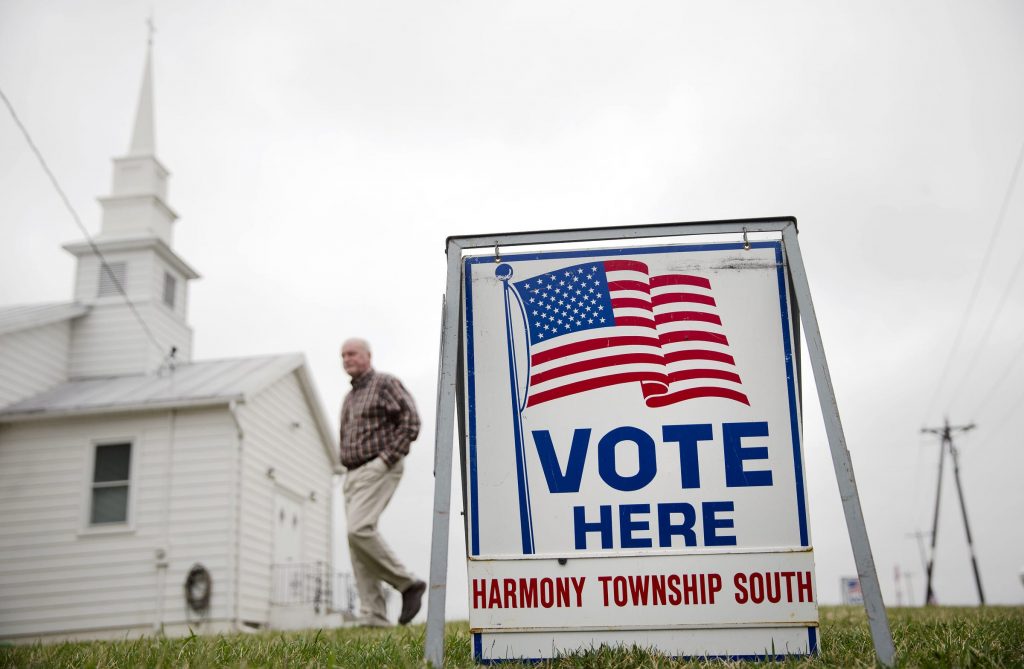
During Tuesday night’s debate between Vice President Kamala Harris and former President Donald Trump, religious references only popped up twice — both by Harris as she talked about abortion bans. She noted that people do “not have to abandon their faith or deeply held beliefs” to support removing the government from the decision process. And she spoke about the trauma of abortion bans on “couples who pray and dream of having a family” but were
To put it in obvious but important terms: mainline Protestants are not like evangelicals. That’s literally why we have these two different categories within Protestantism. The two camps disagree on major issues. We clearly see that in politics. While more than 80% of White evangelicals continue to back Trump, he’s been unable in any election to get to 60% of White mainliners. Theologically, there are also substantial differences in how to interpret the Bible (and even which translations of the Bible to read), how to practice one’s faith, and what ethical teachings to prioritize.
Consider the issue of abortion. While 73% of White evangelicals believe abortion should be illegal in all or most cases and only 25% think it should be legal in all or most cases, that makes them an outlier. The other major Christian demographics are more likely to support abortion access. Those agreeing it should be legal in all or most cases include 71% of Black Protestants, 64% of White mainline Protestants, and 59% of Catholics. Thus, Harris’s comments during the debate Tuesday won’t win over evangelicals but are likely to resonate with many mainliners and other Christians.
This can be seen in a lawsuit filed last year by 13 clergy in Missouri to challenge the state’s near-total abortion ban on church-state separation grounds (especially since the lawmakers actually referenced God in the law). The group includes four Jewish rabbis, two Unitarian Universalists, and one Black Protestant. It also includes six mainline Protestant ministers from the Episcopal Church, United Church of Christ, and United Methodist Church. There are no evangelicals in the group.
Or consider the differences in opinion over the 2020 election, which Trump continued to falsely claim during Tuesday’s debate that he won. Most White evangelicals (60%) agree with him. However, just 38% of White mainliners (and just 38% of White Catholics) think the election was stolen from Trump. Clearly, there’s a significant worldview difference. Rather than appealing to the White evangelicals who wrongly think Trump won, Harris is likely to find more fruitful ground among the other Christians who accept the reality of the 2020 election.
Differences between evangelicals and mainliners also extend to matters of biblical interpretation and how to live out the Christian faith. Mainliners are much less likely to hold a literalistic view of the Bible. They are more likely to ordain women and LGBTQ people to ministry. And they’re more likely to engage in social justice work. For instance, the national co-chairs of the Poor People’s Campaign both come from the mainline tradition: Rev. William Barber II is a Disciples of Christ minister and Rev. Liz Theoharis is a Presbyterian Church (U.S.A.) minister.
Such differences mean faith outreach would look and sound differently. Thus, it matters that the Harris-Walz campaign last month hired a mainline Protestant minister to lead faith outreach efforts. Rev. Jen Butler, a PCUSA minister and social justice activist, is the first mainliner to lead the faith outreach of the Democratic ticket since 2004. In the elections since then, Democrats hired evangelical and Pentecostal activists to lead their religious campaign efforts. This is important because the person in that role will have the most success with communities where they already have connections and with whom they have an affinity. Butler’s well-connected across religious demographics, but her years in mainline life mean she especially brings relationships with those communities.

Rev. Jen Butler (center) speaks during a protest about health care legislation outside the office of Senate Majority Leader Mitch McConnell in Washington, D.C., on July 13, 2017. She is flanked by United Church of Christ minister Rev. Traci Blackmon (left) and Disciples of Christ minister Rev. William Barber II. (Madeleine Buckley/Religion News Service)
Meanwhile, Trump’s religious outreach is still led by Pentecostal minister Paula White-Cain, which is why most of those involved in leading “evangelical” events for his campaign come from Pentecostal and charismatic churches that used to be on the fringe of the evangelical world.
It remains to be seen how the religious outreach in this campaign will go in the critical last weeks, or what impact it will actually have when people show up to vote. But over the next 53 days, it would be great to see more attention to the religious voters who will actually decide the election. We need less attention to the Charlie Brown quest to kick the football this year and instead consider important issues with the unaffiliated, Catholics, and mainline Protestants. Such coverage won’t just help us better understand the election but will also highlight a different vision of what it means to be Christian. For many unaffiliated people today, politically engaged White evangelicals are the only picture of what a Christian is.
And if anyone really wants to learn more about mainliners and politics, there’s even a new book looking at how they helped create Christian Nationalism. Oh, the things we can learn when we don’t focus just on White evangelicals!
As a public witness,
Brian Kaylor

